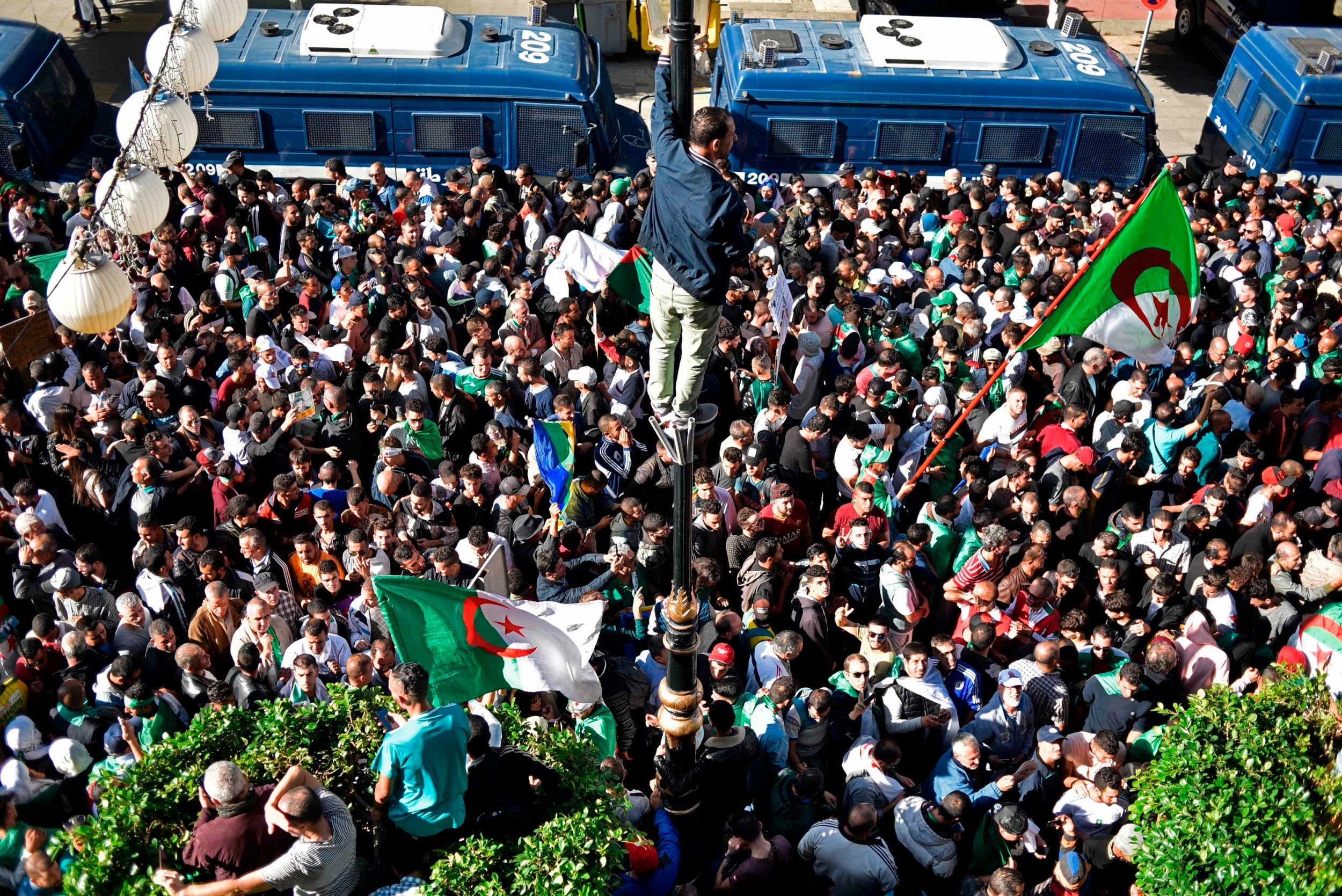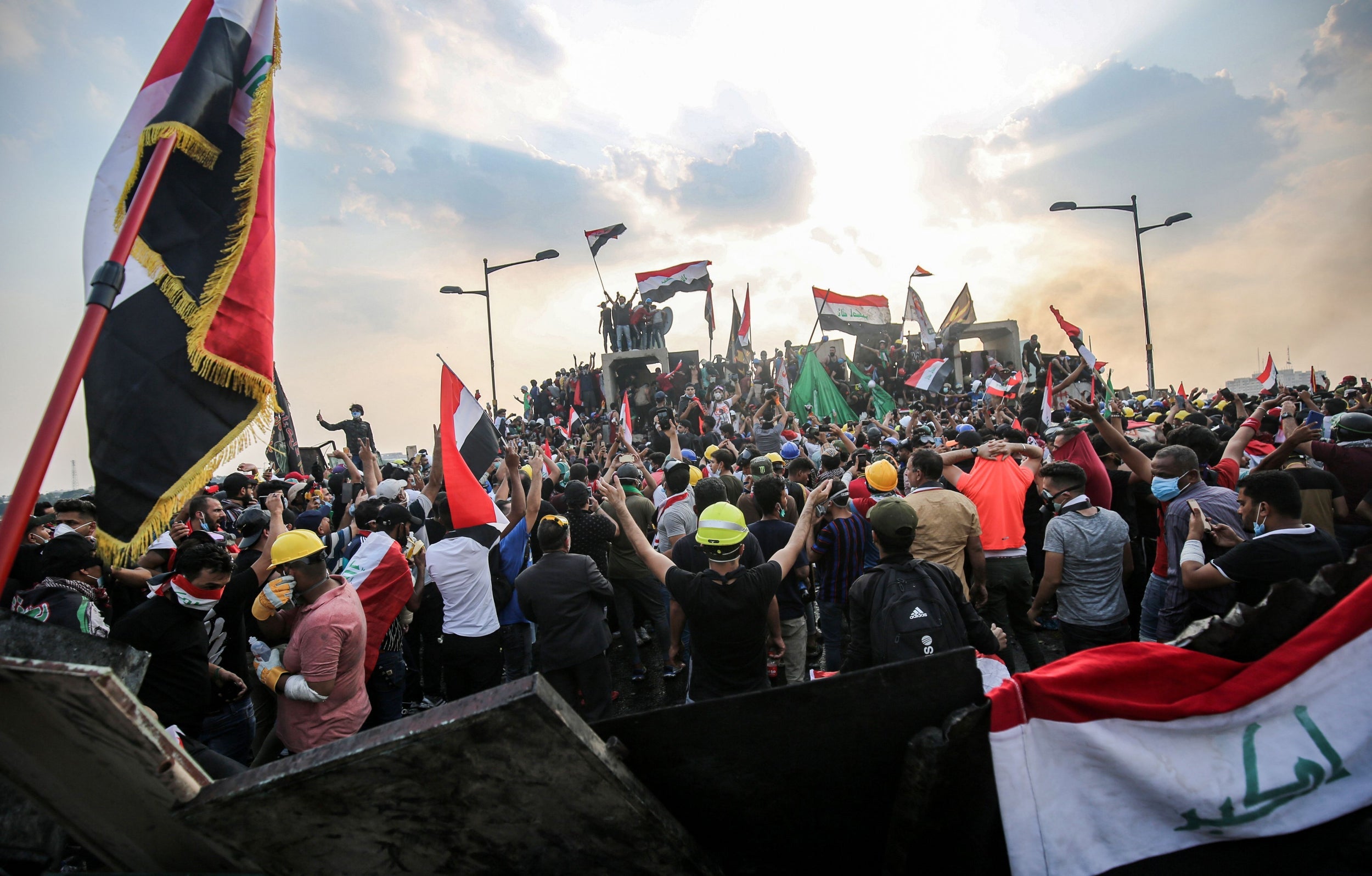Why the Middle East is being rocked by new wave of protests
Across the region there is a demand for systemic change, not just the removal of one or more senior figures, writes Borzou Daragahi


Your support helps us to tell the story
From reproductive rights to climate change to Big Tech, The Independent is on the ground when the story is developing. Whether it's investigating the financials of Elon Musk's pro-Trump PAC or producing our latest documentary, 'The A Word', which shines a light on the American women fighting for reproductive rights, we know how important it is to parse out the facts from the messaging.
At such a critical moment in US history, we need reporters on the ground. Your donation allows us to keep sending journalists to speak to both sides of the story.
The Independent is trusted by Americans across the entire political spectrum. And unlike many other quality news outlets, we choose not to lock Americans out of our reporting and analysis with paywalls. We believe quality journalism should be available to everyone, paid for by those who can afford it.
Your support makes all the difference.A Friday of protests across three major capitals and dozens of cities shook the Middle East and North Africa, with young people draped in the flags of their nations demanding a departure of ruling elites in Lebanon, Iraq and Algeria.
During weeks of demonstrations that have been sometimes violently suppressed by Iranian-backed militiamen, Iraqis have called for a clearing out of the entire political class that came to power after the 2003 US toppling of Saddam Hussein’s regime and controls the country’s massive oil wealth. They poured into the streets of central Baghdad and other southern Iraqi cities in what some were calling the largest protests so far. At least six protesters were reported killed on Friday, according to an official of the Iraqi High Commission for Human Rights quoted by local media.
Lebanese protesters similarly are asking for the warlords-turned politicians who have dominated the country’s politics and pilfered its coffers since a 1989 power-sharing agreement that ended the country’s civil war to step aside.
Algerians too, having pushed for the ousting of long-time president Abdelaziz Bouteflika, are pressing for the sweeping away of the entire military and security elites that have run the oil-rich country since the end of its 1990s civil war. They marked the 37th consecutive weeks of protests.
“Algiers is boiling, people marching and shouting out loud [the names of] famous war of revolution martyrs,” wrote Farah Souames, an Algerian journalist, on Twitter. “The entire atmosphere is giving all of us goosebumps.”
The latest protests in the Arab world are taking place in countries that mostly sat out the 2011 Arab Spring uprisings. Many had said that Lebanon, Iraq, Algeria, and even Sudan, which toppled its longtime ruler this year, had been too exhausted by years of armed conflict and disorder to press for change.
That turned out to be wrong, as ordinary people agitating for jobs, and decent public services such as electricity, water, education and healthcare took to the streets this year en masse, including in Egypt, where protesters took on president Abdel Fattah el-Sisi’s security forces in September.
“What the Arab Spring Spring of 2011 did was broke up the fear factor, and the idea that it’s pointless to demonstrate,” said Tamara Coffman Wittes, a Middle East specialist at the Brookings Institute. "The underlying factors building pressure for change have not disappeared. Very few governments in the region have done anything significant to try to address the pressures.”
It has been a renewed season of discontent throughout the world. Massive anti-government protests have also swept through Ethiopia, Guinea, Chile and Hong Kong, as well as massive marches demanding action on climate change. They show the persistent belief in public protests among young people.
In Arab countries, the root of the discontent is a lack of economic opportunities.
“The economic models in the countries across the region don’t work,” said Zaid Ali, a constitutional scholar at the IDEA, the UN’s democracy promotion arm. “The private sector is starved to death. The public sector can’t hire enough people. And demographics are out of control.”
Twenty years ago, a young college graduate in Algeria could reasonably expect a decent job. But now it’s just as likely he won’t get one. For years migration to Europe provided a safety valve as well as a source of revenue in the form of remittances. But with increasing intolerance for migrants, that has dried up.
“People’s main concerns are, how am I going to raise a family?” said Mr Ali. “What’s my situation going to be in 20 or 30 years? People are very pessimistic. Even if they’re not economists, they can see the trends, and understand very well what’s happening around them.”
The wave of protests over a hike in bread prices began in Sudan late last year, and caught on in Algeria too, after Mr Bouteflika vowed to run for a fifth term. Iraqi protesters joined the fray just a few weeks ago, prompted by the firing of a general, while Lebanese took to the streets in part over a new tax on WhatsApp calls. The protesters are not coordinating across international boundaries, but appear to be motivated by each other.
“Seeing protests in one place probably adds to inspiration in other places,” said Timothy Kaldas, a senior fellow at the Tahrir Institute for Middle East Policy. “They have all their local reasons and specific dynamics but they’re also learning from each other.”

For example, in protests across the region, there is a demand for systemic change, not just the removal of one or more senior figures, and a barring of any former regime leaders from having roles in the transition, a lesson learned from the failed uprising in Egypt.
“All of them means all of them,” say the protesters in Lebanon.
“This isn’t a revolution against a prime minister or a president,” said Mr Kaldas. “It’s an uprising demanding the departure of the entire ruling class.”
Analysts struggled to explain why so many protests erupted this year. One factor may be the relatively successful transition to democracy in Tunisia, the first Arab nation to rise up against its autocratic ruler in 2011. This year, after its president died in office, it held an election in which the outcome was completely uncertain and the winner a relative unknown outside of all the major political parties.
“The primary value of Tunisia is contradicting the claims of those who defend the status quo by claiming there isn’t any way other way to do this.” said Ms Wittes. “Tunisia shows you can get rid of the old way of doing things and build it a different way, with leaders who understand they’re not absolute, who are constrained by the law and who leave power voluntarily.
Another generation of Arabs – better educated, more connected to the world – is coming online. They want to be the agents of their own lives. They want choice
Observers also suggested it may not be a complete coincidence that the wave of uprisings came after the territorial defeat of Isis. For years regimes from across the Middle East used the threat of the jihadi group as both a cautionary tale to keep potential protesters from contributing to anarchy that could be exploited by the group and an excuse to tighten surveillance and bolster the police state.
“For the last few decades the regimes have used some sort of security threat to justify emergency laws and various police state tactics,” said Mr Kaldas.
A rare confluence of well-organised opposition leadership and support for its aims by the US and the European Union forced a genuine democratic shift in Sudan.
But there’s so far very little evidence that the protests are forcing change. Buttressed by control over oil wealth, Baghdad officials are said to have felt no urgency about the protests, hoping to ride out the storm. Algeria’s ageing military and security mandarins also have shown little sign they’re planning to compromise with protesters. Lebanon’s prime minister Saad Hariri has resigned, but the government he formed and the system he was part of remains firmly in power.
“There’s a generational component,” said Ms Wittes. “Another generation of Arabs – better educated, more connected to the world – is coming online. They want to be the agents of their own lives. They want choice. They are the majority. And they are pressing for changes in politics and society.”
Join our commenting forum
Join thought-provoking conversations, follow other Independent readers and see their replies
Comments